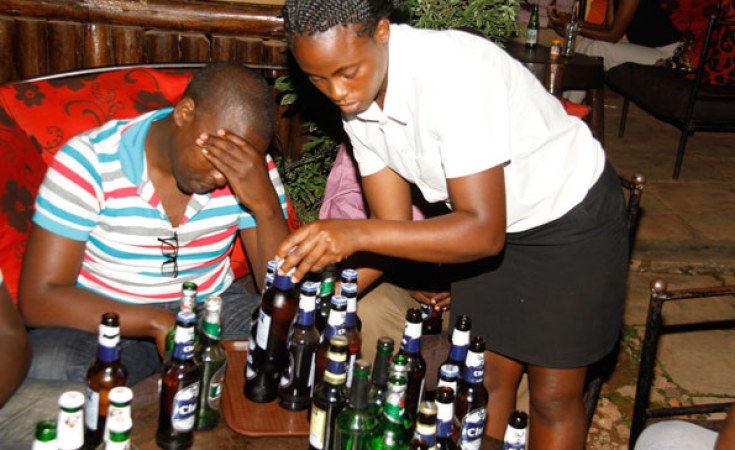
In a recent House session open to all lawmakers, discussions on the Alcoholic Control Bill, 2023 continued, focusing on the potential benefits of prohibitively high taxes on alcoholic beverages for Uganda. Dr. Hafsa Lukwata, the head of the division of Mental Health at the Ministry of Health, highlighted the urgent need to combat addiction in Uganda, where per capita alcohol consumption is nearly 10 liters, unmatched in Africa. Dr. Lukwata stressed the importance of increasing taxes on alcohol to raise prices, making it less affordable and accessible, particularly targeting young people and those who are not yet addicted.
However, alcohol manufacturers have opposed additional alcohol levies, arguing that they are ineffective and unfair in addressing alcohol abuse. They expressed concerns about job losses and the impact on responsible drinkers. Despite this, Mr. David Kalema, the chairperson of the Uganda Alcohol Policy Alliance (UAPA), emphasized the potential benefits of higher alcohol taxes, suggesting that the revenue could be used for public health initiatives.
During the session, proposals were put forward to ban the sale of alcohol at petrol stations, restrict its use in public places, and raise the minimum legal drinking age from 18 to 21. Dr. Lukwata emphasized the importance of preventing young people from starting to drink alcohol, stating that raising the minimum drinking age could help achieve this goal.
While the input of members on the Parliamentary Health Committee was considered vital, only a handful of them attended the session, raising concerns about the politicization of the bill. Some lawmakers expressed fears that supporting the bill could harm their political prospects, particularly due to alcohol's significant role in Ugandan society.
Mr. Gaffa Mbwattekamwa, a lawmaker from Igara West, raised concerns about the impact of the proposed regulations on constituents who rely on alcohol-related businesses for their livelihoods. He argued that increased taxes would disproportionately affect poor Ugandans, while large-scale producers would continue to operate.
Similarly, Mr. Michael Kakembo, the Entebbe Municipality lawmaker, expressed skepticism about the effectiveness of the proposed measures, highlighting alcohol's entrenched role in Ugandan culture. He warned that restricting alcohol consumption could lead people to turn to other harmful substances.
Development partners have supported the imposition of high taxes on alcohol and tobacco, arguing that the revenue could help fund essential healthcare services and infrastructure development. Lawmakers like Ms. Susan Amero have expressed support for higher alcohol taxes but have emphasized the need for transparency in how the revenue is used.
The Alcoholic Control Bill, 2023, aims to repeal several existing alcohol-related laws and introduce stricter regulations, including prohibiting the sale of alcohol to specific individuals, regulating alcohol promotion and advertising, and providing support for addiction treatment and rehabilitation. The bill also proposes the creation of licensing and regulation committees and stricter enforcement of alcohol-related laws.
Despite the potential benefits of the bill, there are concerns about its fate, given the resistance faced by similar bills in the past. Lawmakers hope that the Alcoholic Control Bill, 2023, will not suffer the same fate as previous attempts to regulate alcohol consumption in Uganda.











